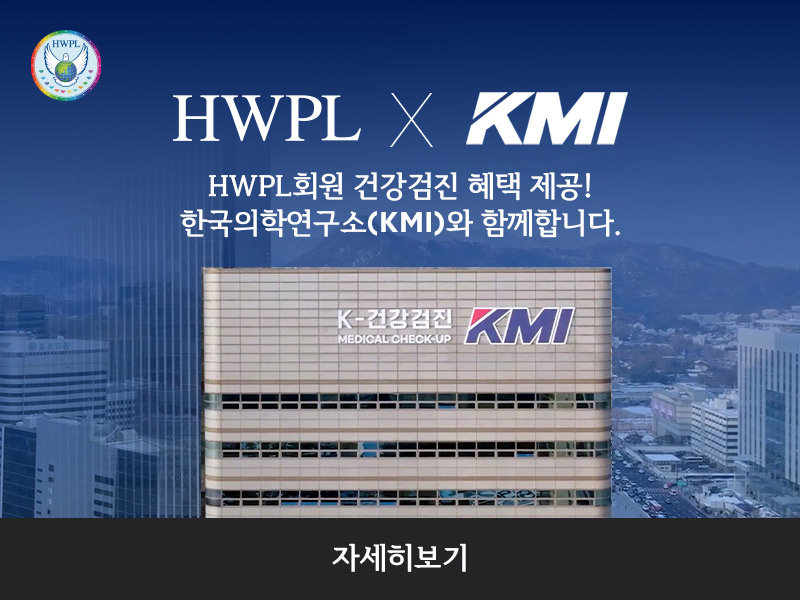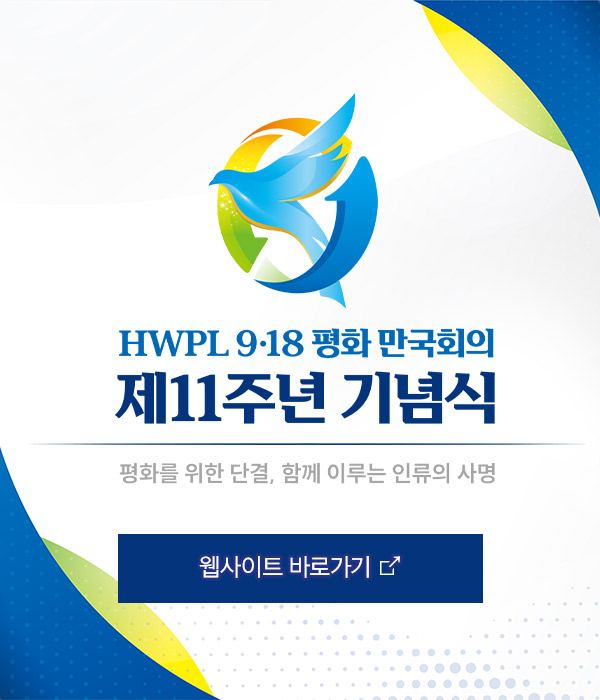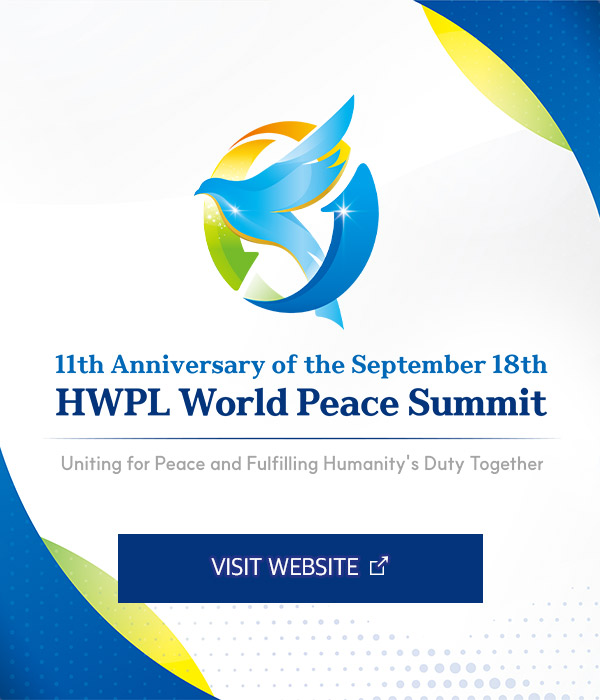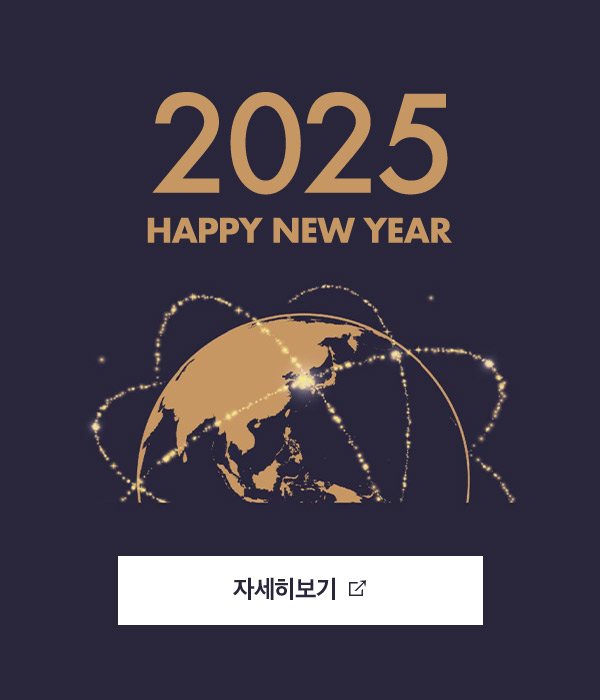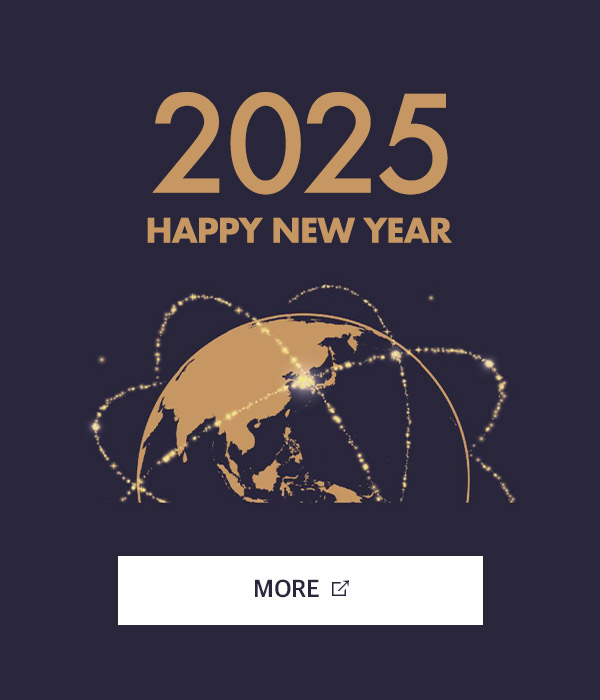2025 International Youth Peace Conference
– Sharing Progress and Strategies of YEPW Worldwide –
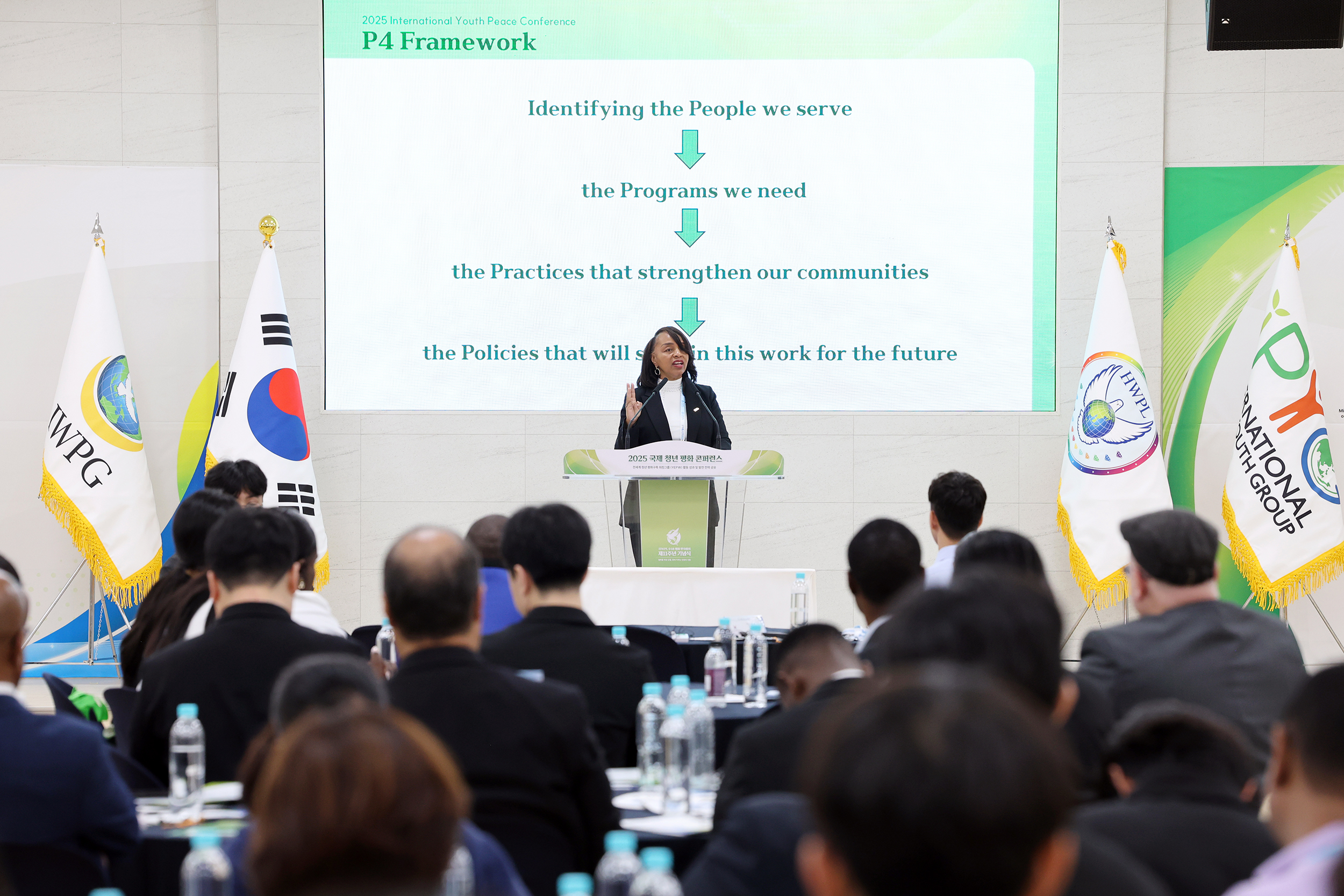
On September 18, in Cheongju, Republic of Korea, the IPYG hosted the “2025 International Youth Peace Conference” as part of the 11th Annual Commemoration of the HWPL September 18th World Peace Summit. A total of 111 organizations around the world, including government ministries, supported the event by sharing their logos in solidarity.
HWPL has been building peace through cooperation across sectors in areas such as international peace law, religious harmony, peace education, and youth engagement. In particular, IPYG youth have become leaders in their local communities, sparking waves of peace.
Over the past year, through the Youth Engagement & Peacebuilding Working Group (YEPW), youth have led change in their communities through education, volunteer work, policy efforts, and cultural initiatives, while also expanding collaboration with businesses, local governments, and international organizations. As a result, the number of partner organizations that resonated with IPYG’s mission has increased to 297 in 9 countries.
This conference served as a meaningful opportunity to reflect on the peace activities carried out by youth over the past year and explore directions for future implementation. It also introduced five YEPW activity models—Public Awareness, Volunteering, Training, Policy Advocacy, and Creative Collaboration—as strategies for developing and expanding regional peace projects. Best practices were shared for each type.
The following are the five activity models of YEPW:
- The Public Awareness model promotes the importance and value of peace by supporting and collaborating with civil organizations, governments, local authorities, or companies. It builds public consensus through peace-centered messaging.
- The Volunteering model involves youth directly participating in solving local community issues and contributing to positive change through volunteer work.
- The Training model fosters new leaders and carries out peace projects through lectures, mentoring, workshops, and the implementation of action-oriented educational programs.
- The Policy Advocacy model supports and seeks the institutionalization of the DPCW (Declaration of Peace and Cessation of War) at local, regional, and national levels.
- The Creative Collaboration model strengthens youth community awareness and helps participants experience peace through collaboration in arts, sports, and creative activities.
At the conference, successful case studies from each model were shared.
1. Korea YEPW (Public Awareness)
Topic: The power of youth
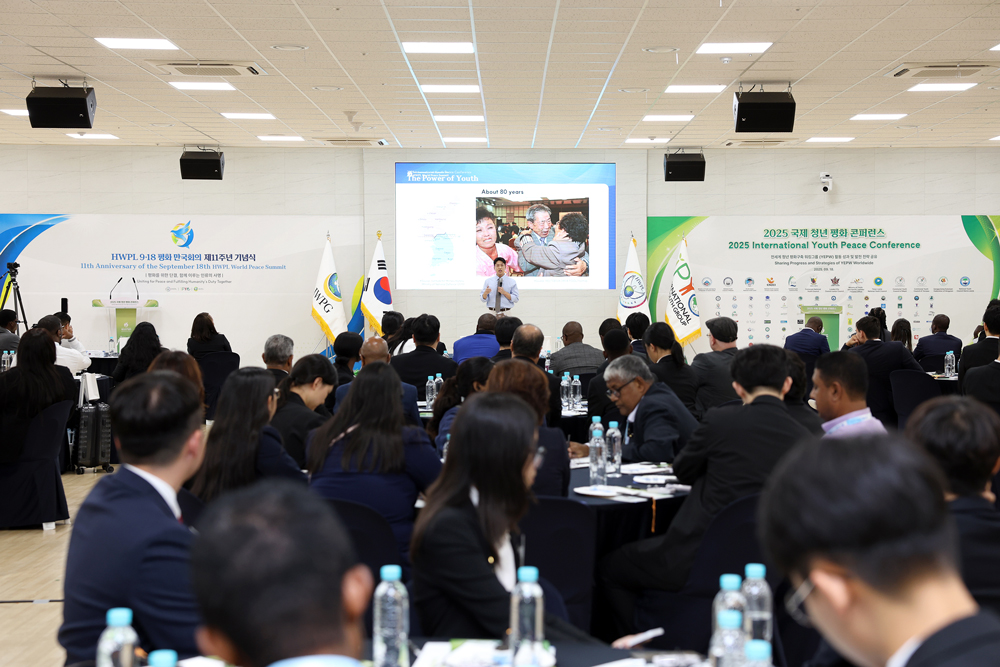
Mr. Chung Young-min, General Director of the IPYG, introduced the “Korean Peninsula Peace and Unification Campaign” led by Korea YEPW as an example of the Public Awareness model. To address one of the most urgent issues in global peace—peaceful unification of the Korean Peninsula—they are conducting workshops and campaigns to promote the necessity of free movement within the peninsula, thereby drawing international attention and support.
2. Zambia YEPW (Volunteering)
Topic: Youth-led Community Actions for Peacebuilding)
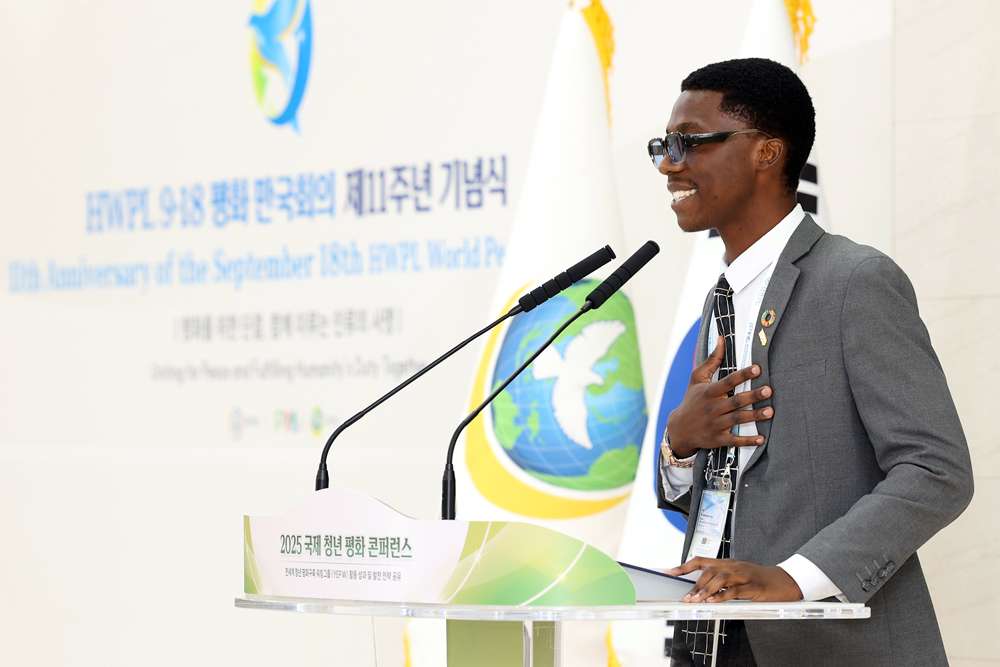
Mr. Andrew Junior Mwima, President of the Chreso Youth United Nations Association of Zambia, introduced how Zambian youth have been reducing crime and creating change in their communities through the Volunteering model. Recognizing these efforts, 38 youth committees in Lusaka officially partnered with IPYG. With support from the Lusaka City Council, peace signs were erected in support of DPCW Articles 5 (Right to Self-Determination), 9 (Freedom of Religion, Ethnic Identity, and Peace), and 10 (Spreading a Culture of Peace). This initiative was reported by 11 media outlets including the national broadcaster ZNBC, reminding citizens that peace is a shared responsibility.
3. The Philippines YEPW (Training)
Topic: Expanding Filipino Youth Peace Leadership through the Youth Empowerment Peace Class Program
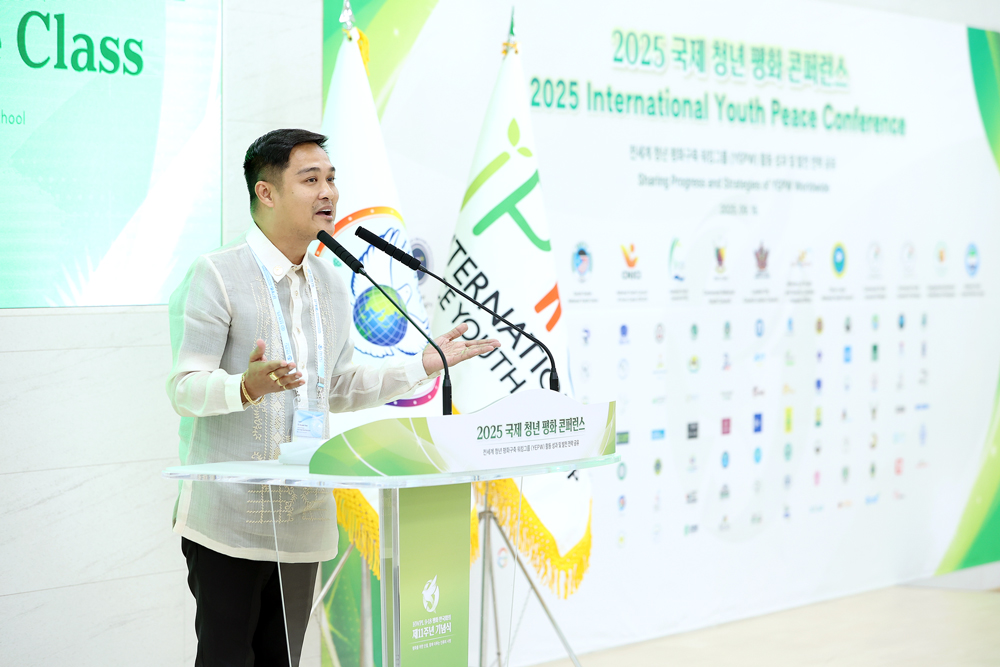
Dr. Reynaldo Nama, Assistant Principal of Signal Village National High School of the Philippines, presented the Youth Empowerment Peace Class (YEPC) as a Training-type model. He shared how the program fosters youth into peace leaders and spreads peace across the Philippines. Started in 2023 in Manila and Mindanao, the program has now expanded to Hinagaran and Kawit, Cavite, with around 9,000 youth participants.
4. The U.S. YEPW (Policy Advocacy)
Topic: United for Peace: YEPW’s Policy Journey toward Humanity’s Mission
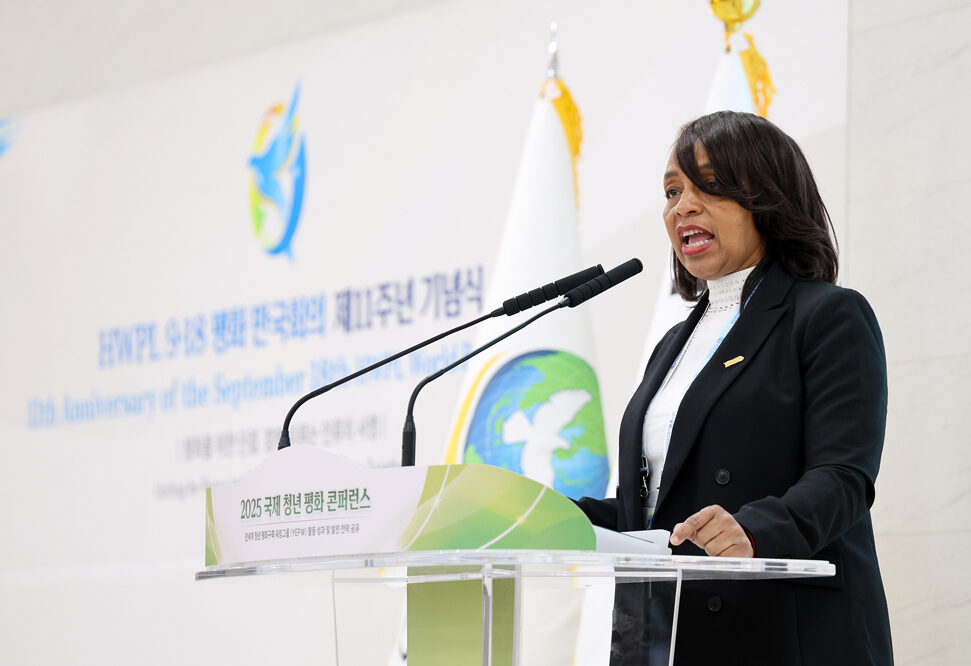
Dr. Maya Taylor, Founder of Arrow Youth Leadership Council International of USA, presented the Policy Advocacy model showing how youth voices have been institutionalized into actual policies for peace. The Atlanta YEPW developed a toolkit to help municipalities implement YEPW activities and pushed cities to adopt resolutions supporting DPCW Article 10 on “Spreading a Culture of Peace.” As a result, five cities and counties—South Fulton, Stonecrest, Fairburn, DeKalb County, and Fulton County—officially adopted the resolutions and designated a “Peace Week.”
The conference demonstrated that youth united for peace are transforming their communities. It also served as a platform for youth from different countries to learn from each other’s experiences and strengthen their determination to act.
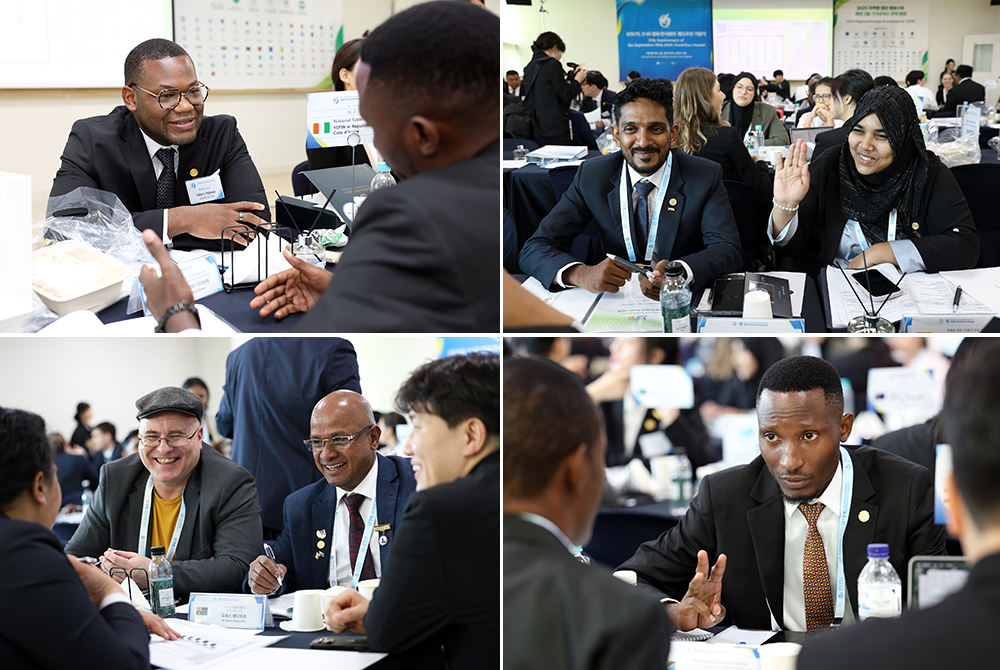
Prior to the 2025 International Youth Peace Conference, the “2025 Regional Youth Engagement & Peacebuilding Working Group (YEPW) Strategy Meeting” was held. During this meeting, each working group developed practical peacebuilding strategies through table discussions.
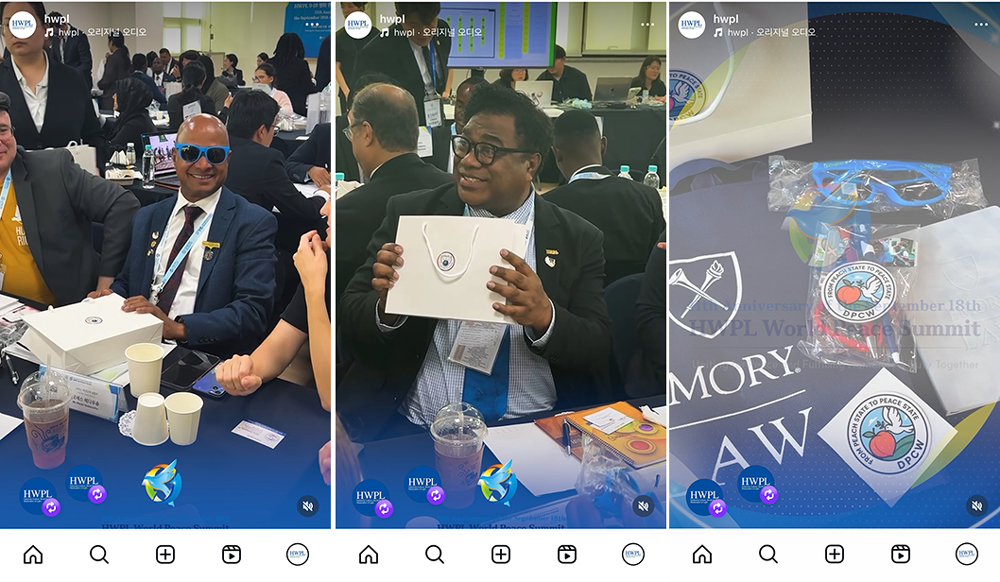
At this regional meeting, heartfelt support was extended to the youth committed to peace activities. In particular, organizations that had participated in the U.S. YEPW’s achievement of adopting the DPCW resolution in Georgia and the designation of “Peace Week” contributed by donating supplies. Contributors included the Atlanta Boys and Girls Club, Gwinnett Stripers Baseball Team, Emory University School of Law, Gwinnett Police Department, City of Stonecrest, and Arrow Youth Leadership Council International of USA.
Looking ahead, it is anticipated that youth around the world will apply and develop the five YEPW activity types to realize peace in their regions.


